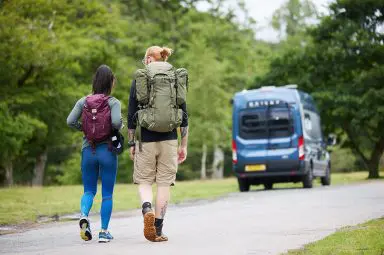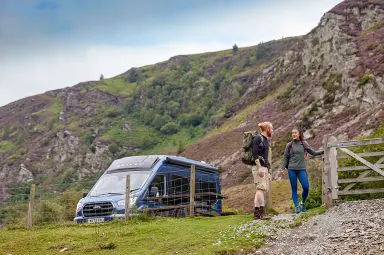Working From Home-From-Home
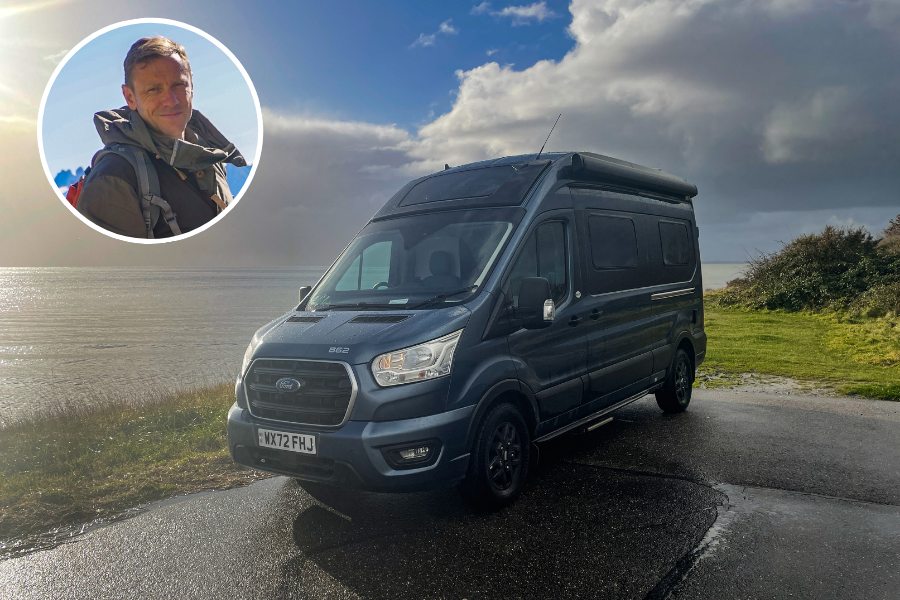
The series looks at how European countries have defended themselves over the last few thousand years, and the next episode on the shooting schedule was The Netherlands. So, after dropping Bex off at the airport after our final day in Germany, I headed to the land of Windmills, Bicycles, Canals, and Tulips to get back to work. Fortunately, I still had the Endeavour, so this week’s work would be a little more civilized than normal.
My time in The Netherlands was excellent, and due to the special access, we had as a film crew, I had the chance to park the new Endeavour in a location usually out of bounds. Sea defences next to bomb sites, next to a famous windmill which had withstood an attack by Napoleon, Nazis, and the Allied Forces over the centuries. And, slightly less glamorous, in a supermarket car park near Calais. But this latter did, to my endless appreciation, have six spaces for a campervan, even if the 2-pin French sockets forced me to jury-rig a multi-adaptor connection to get power.
But the work didn’t stop when I made it across the Channel. I was straight into another job in London. Thankfully, there are several good campsites which, along with the Endeavour, provide all the facilities of a home but at a fraction of the price of a London hotel. I’ve used our motorhomes, first a Bailey Alliance and then the Adamo, when I’ve been working away. It is my first choice over a hotel, and I will always take it if it is logistically possible. The motorhomes, and now the Endeavour, offer advantages that a hotel simply does not.
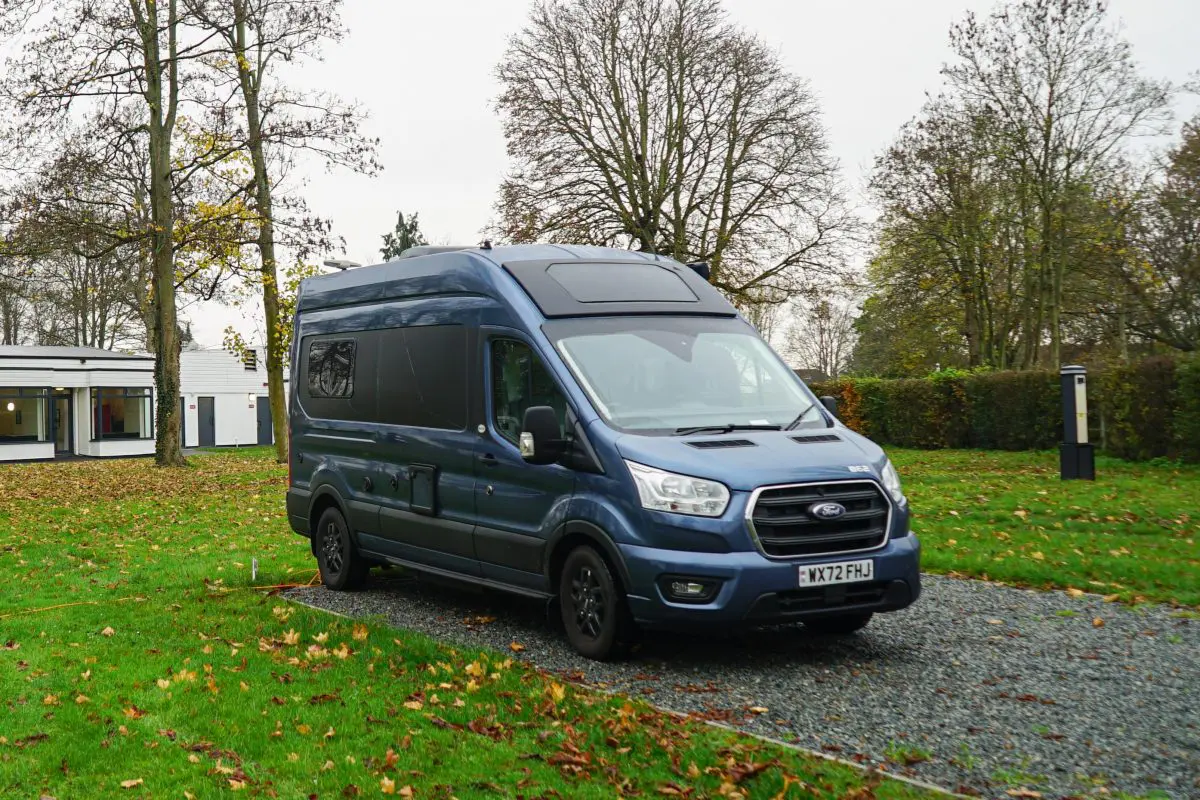
Food
Food is fuel, and whether it’s a day filming trekking through a Polish Forest, climbing cliffs, cave diving, skydiving, or smashing out stunts on a film set, my work can be pretty active. Not only that, but simple calories do not suffice. I don’t just need food; I need good food, rather than the ultra-processed stuff that comes from service stations or takeaways. In the van, I can make use of the huge fridge to take what I need for the week and home-cook it. I’ve learned, over the years, the big difference quality nutrition can make in performance, health, and just your ability to keep going. Hotels, I have found, rarely come with anything other than a tiny fridge or a hob/grill/oven combo.
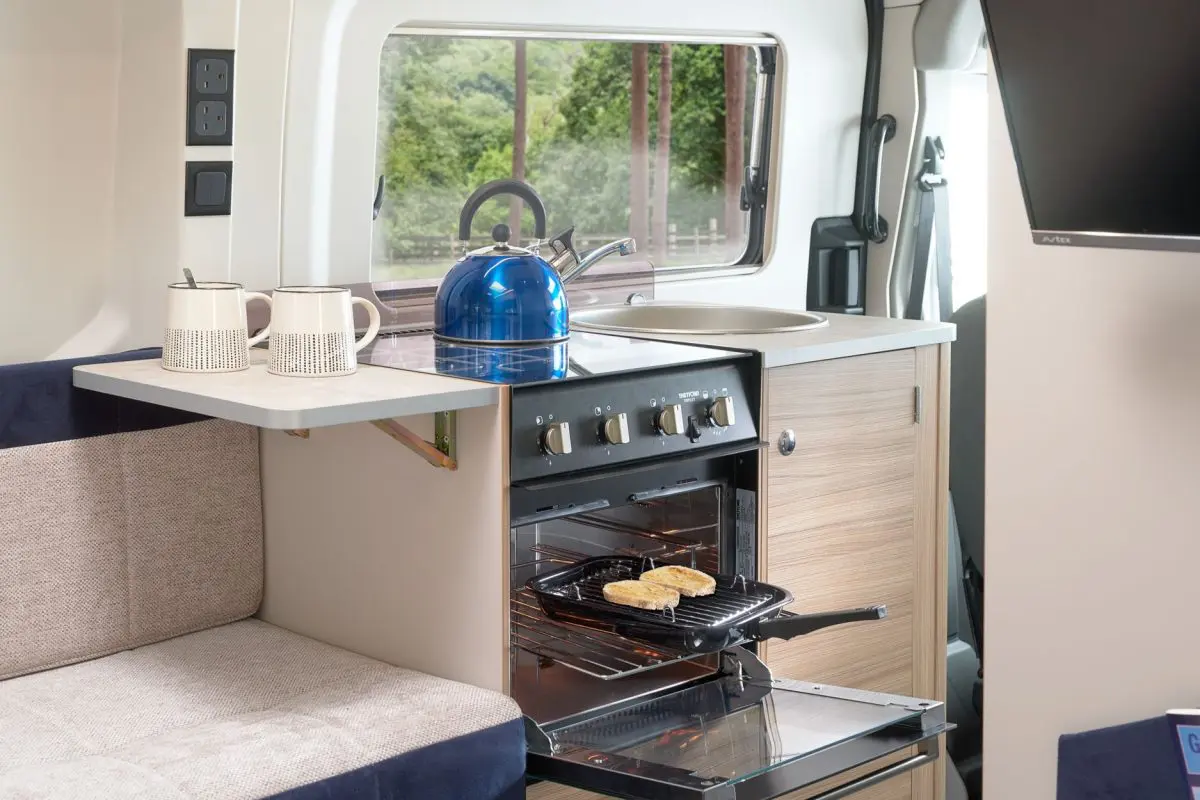
Sleep
In recent years, there has been a development in the recognition that sleep may play the biggest single factor in one’s health and performance. It is common for people to have unsettled nights in hotel rooms, at least for the first night or two. This seems to be linked to our evolutionary biology where, if we are nodding off, and therefore vulnerable, in an unfamiliar environment, our subconscious is on alert to threats. This can subside after a few nights but is not a factor in the Endeavour. I have spent so many nights in the motorhomes that it is as familiar as my bed, and therefore, don’t suffer the same sleep interruptions I can encounter in an unfamiliar hotel.
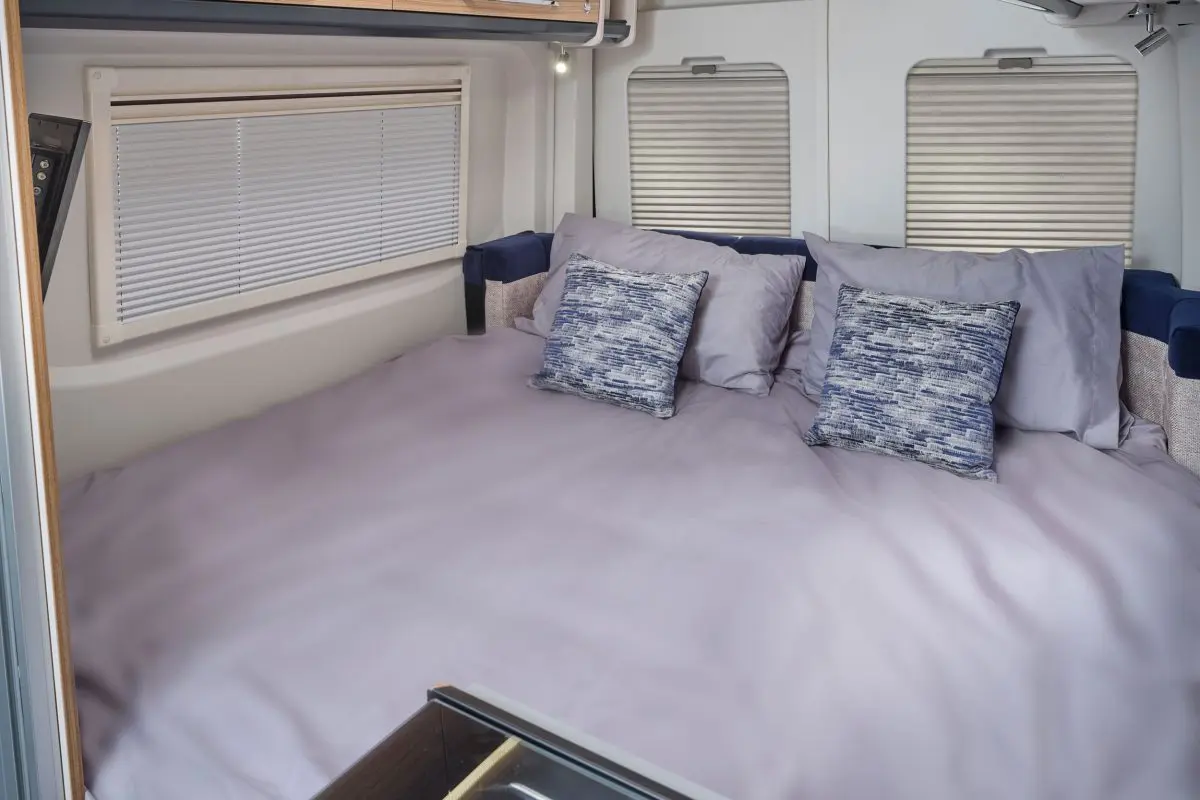
Equipment
A lot of what I do for a living requires a mountain of equipment. Whether that’s holdalls of protection pads and special harnesses for stunts, diving cylinders and rebreathers for diving, or parachute systems and helmets for skydiving, the process of continually moving it all in and out of hotels each morning and night can take its toll. In the van, I can take more, in a state of continual readiness, and I need not touch it until it’s ready to use. This not only allows me to bring more and avoid cutting corners but also saves so much of my time and effort.
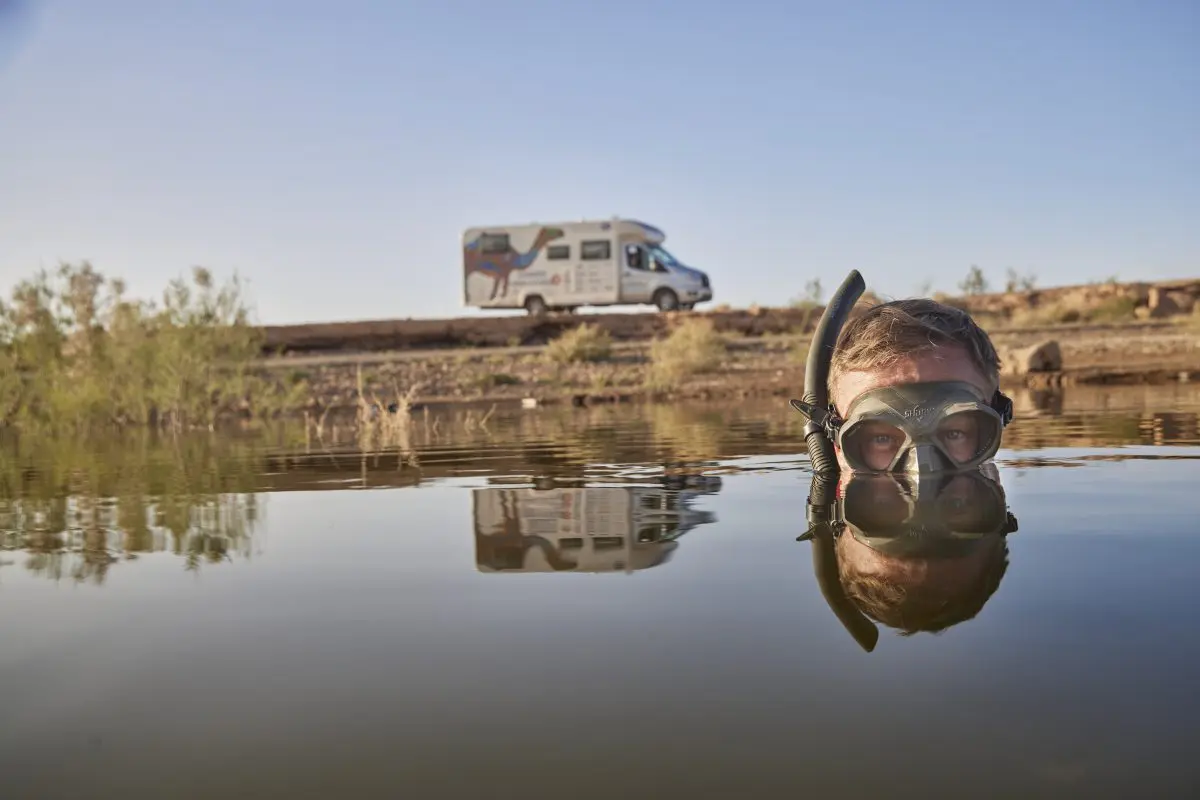
Time Efficiency
It takes time to check into a hotel. Perhaps you’ve not noticed, and I am being overly sensitive about a few minutes. But the checking-in process, with its forms, queues, and moving kit combined with the same on the way out every day, can steal 30-40 minutes of my day, every day. Whereas the mental energy and time it takes to pull up and the handbrake on is seconds. On long days with late finishes, I appreciate pulling up to wherever I’m bedding down for that night and within minutes am tucked up in bed knowing that I’ll have to up only minutes before driving off.
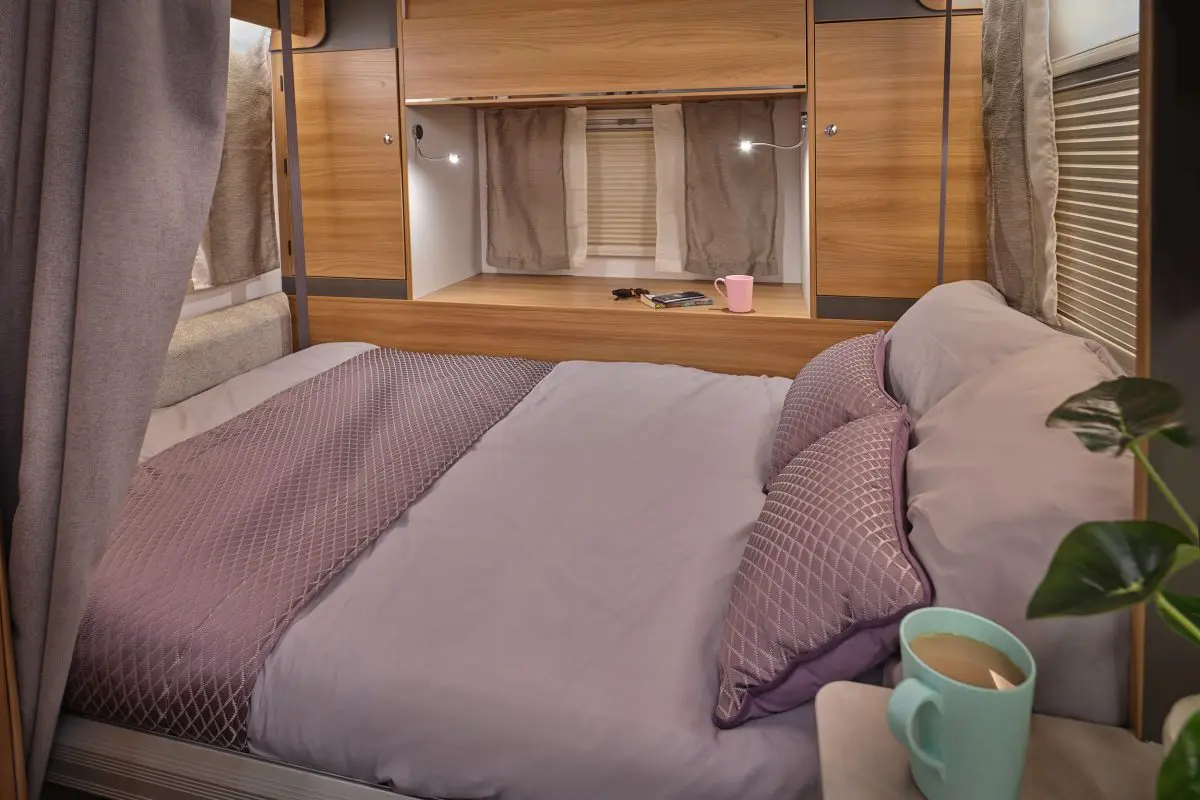
‘On Set Support’
Finally, it’s nice, when possible, to have the van or motorhome with me during the day. In The Netherlands, on a cold and intermittently rainy day, we spent much of our time filming outdoors or in freezing WW2 bunkers. Often in relatively remote spots, it made charging equipment, getting warm between takes, and just making a hot brew difficult. Or it would have done had a mobile home not been ‘on-set’ with us.
It’s not always possible. Sometimes you’re being flown to the US or Japan, and the drive isn’t worth the advantages the van offers. But around the UK and Europe, I will when I can, take my Bailey. That way I’m still technically ‘working from home’.
Latest news & events
See all news & eventsChipping Sodbury Spring Sales Event
BADMINTON ROAD, CHIPPING SODBURY, BRISTOL
West Country Motorhomes Open Weekend
BRISTOL ROAD, BRENT KNOLL, HIGHBRIDGE, SOMERSET
Swindon, Oxford and Reading Caravan and Motorhome Centre Easter Sales Event
GREATFIELD, ROYAL WOOTTON BASSETT, WILTSHIRE
Grantham's Midlands Caravan & Motorhome Season Ready Show
SPITTLEGATE LEVEL
GRANTHAM
